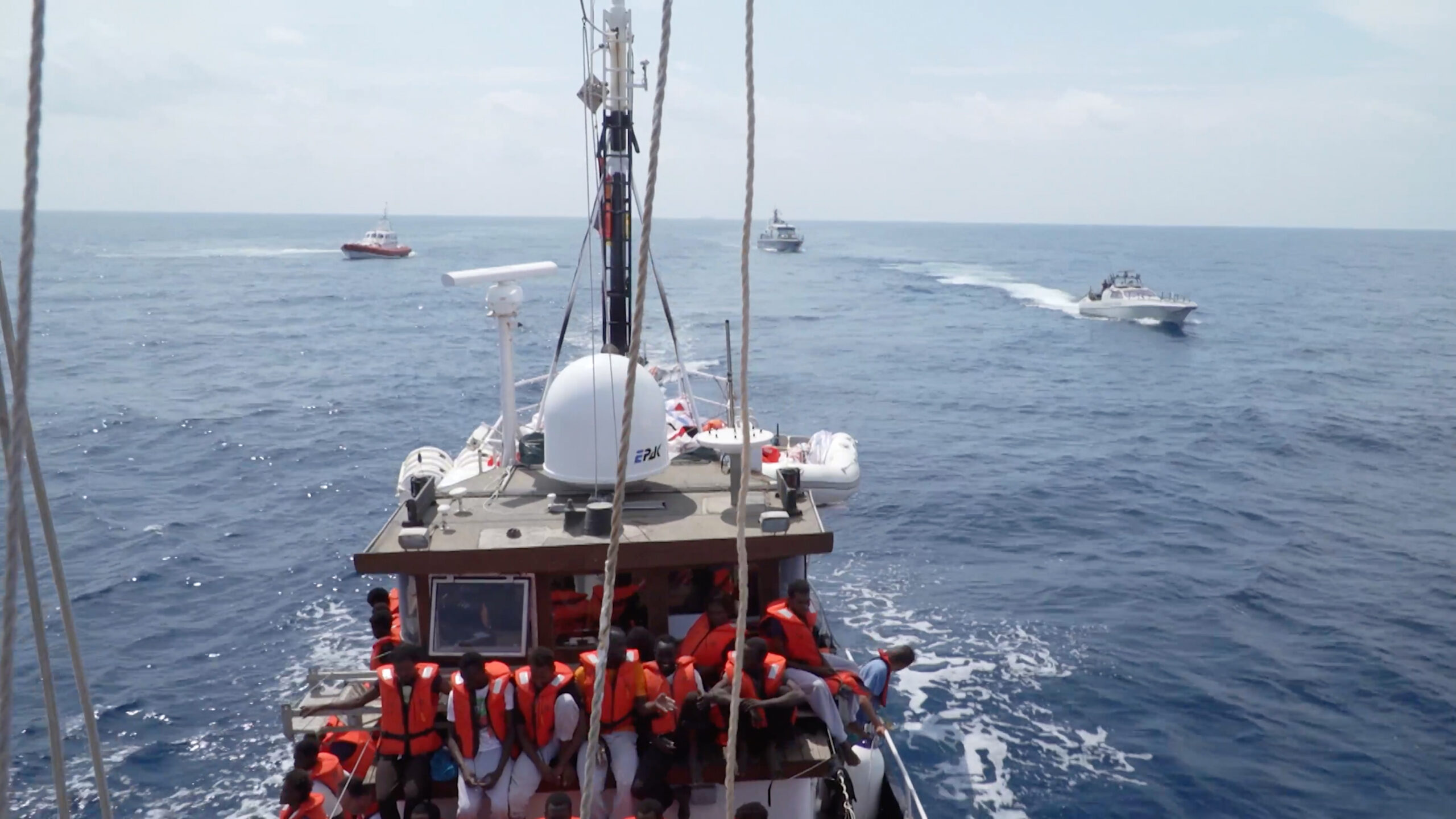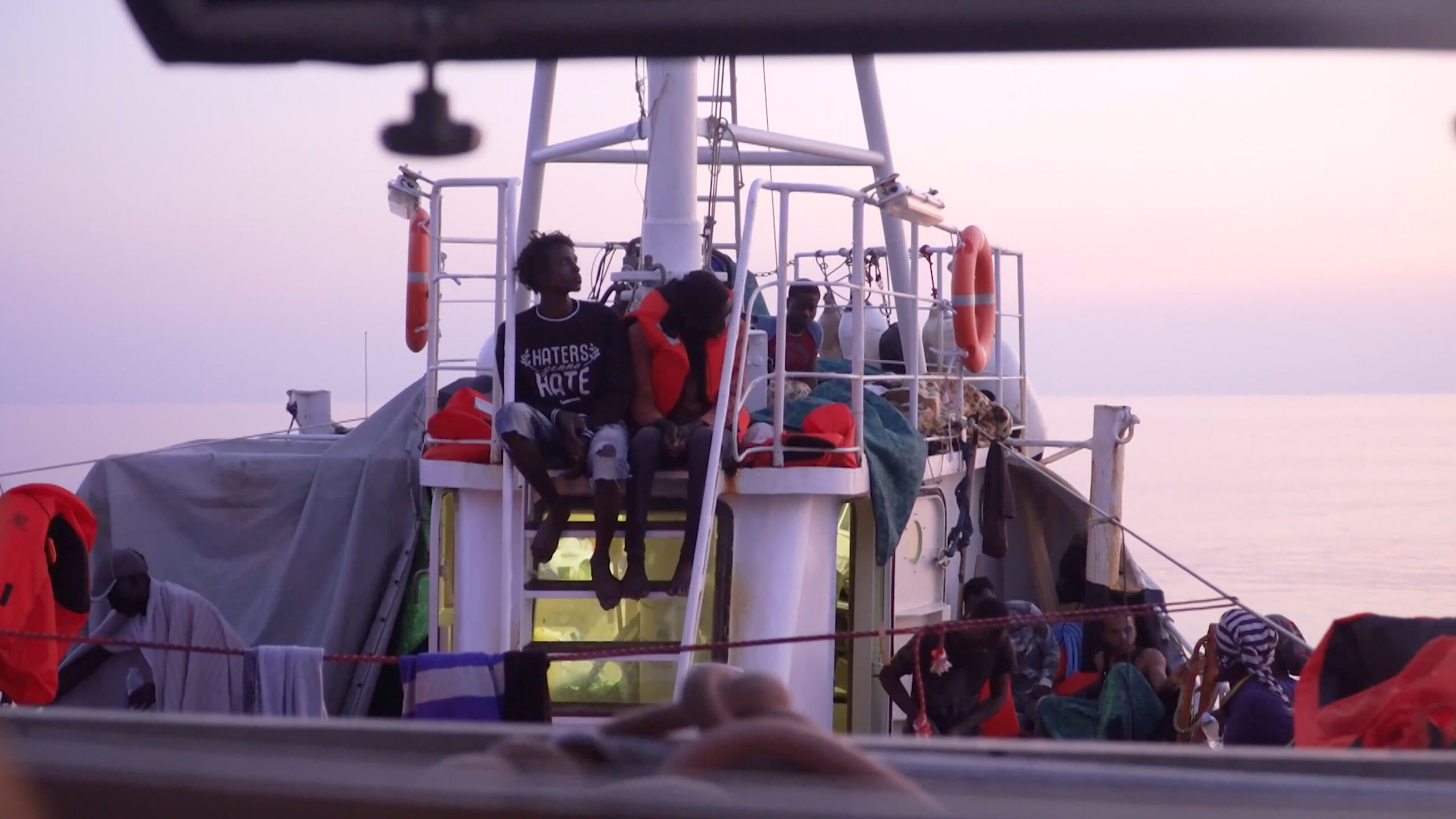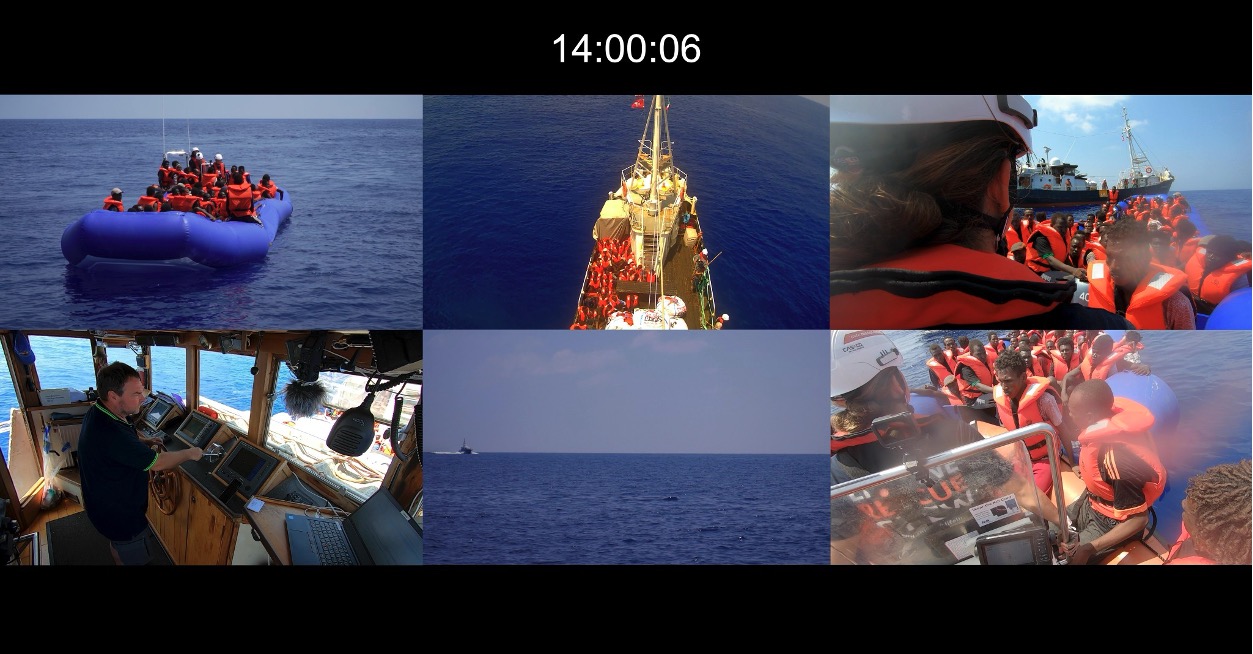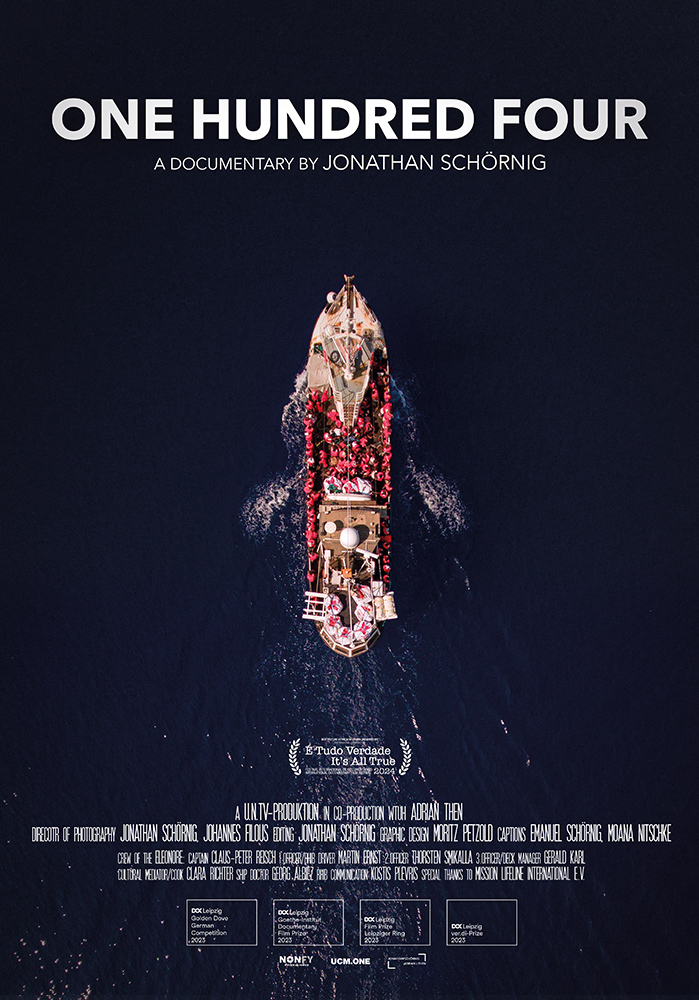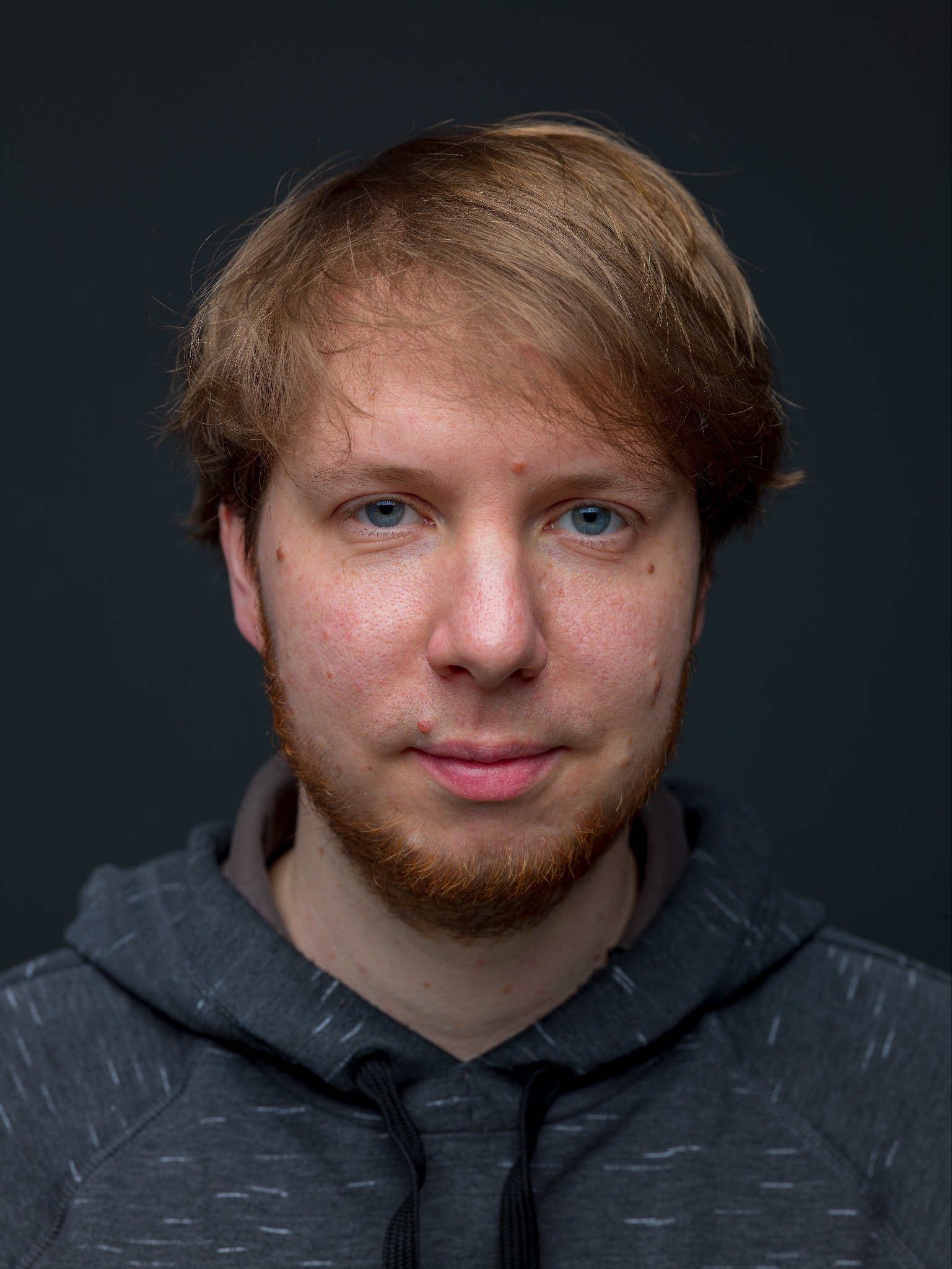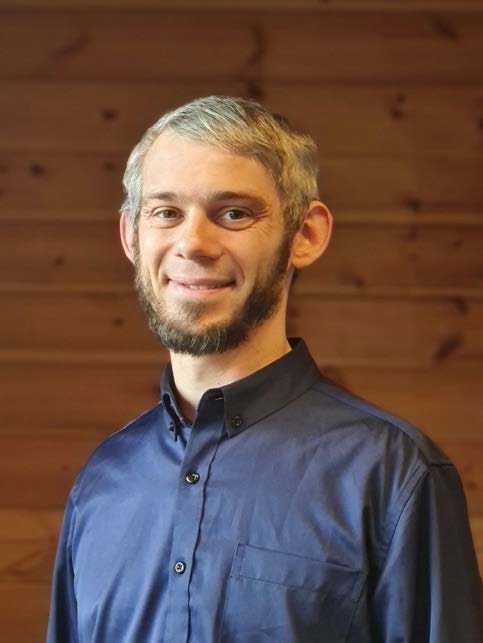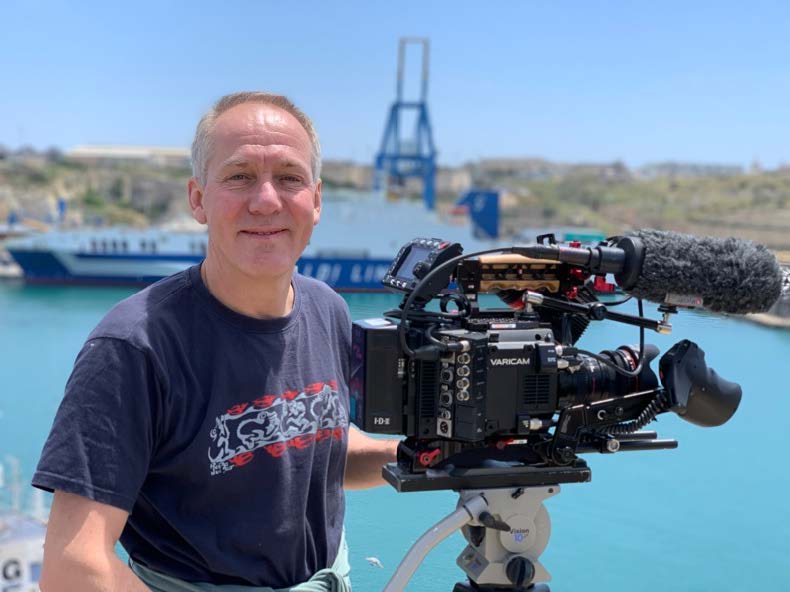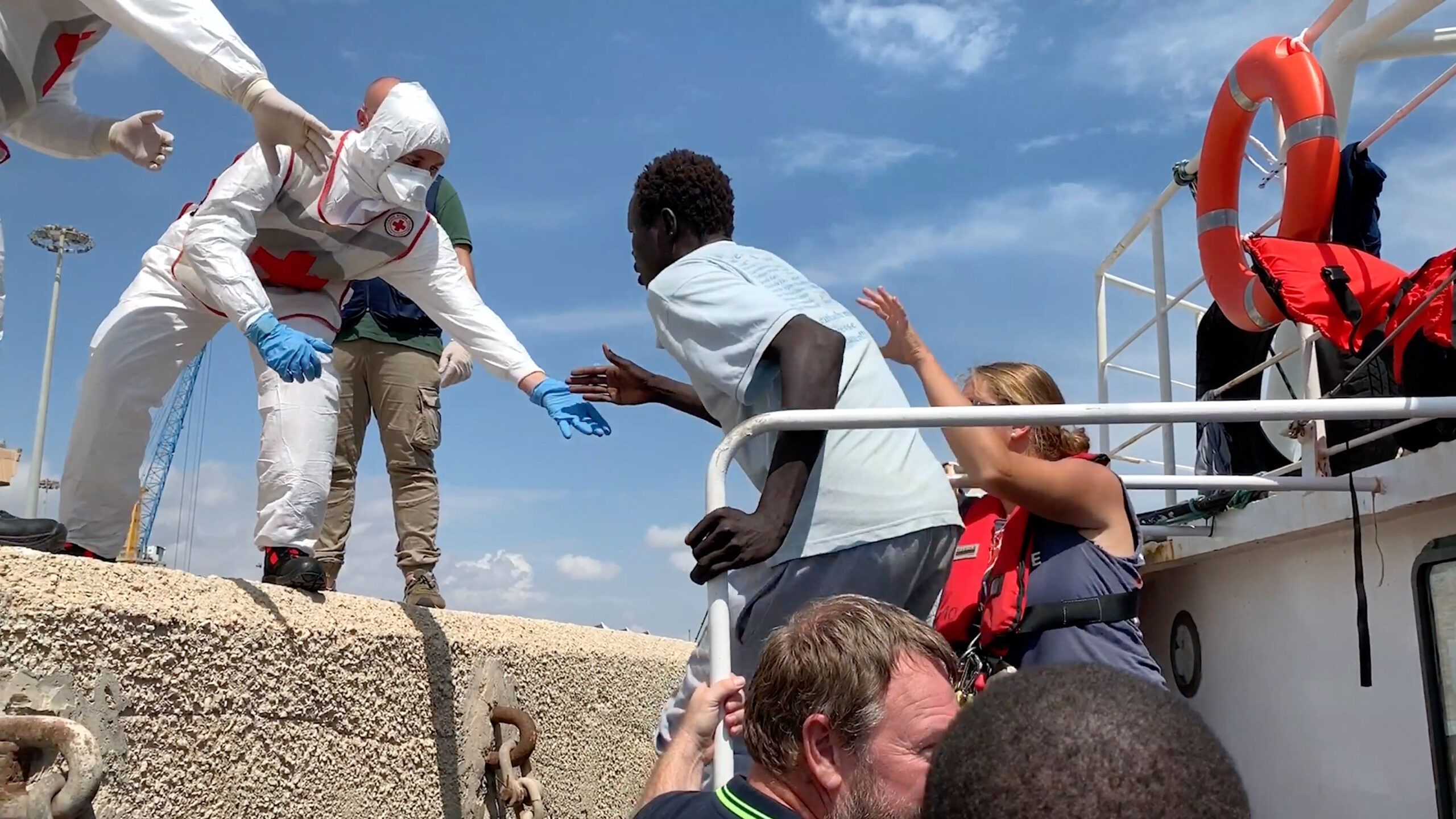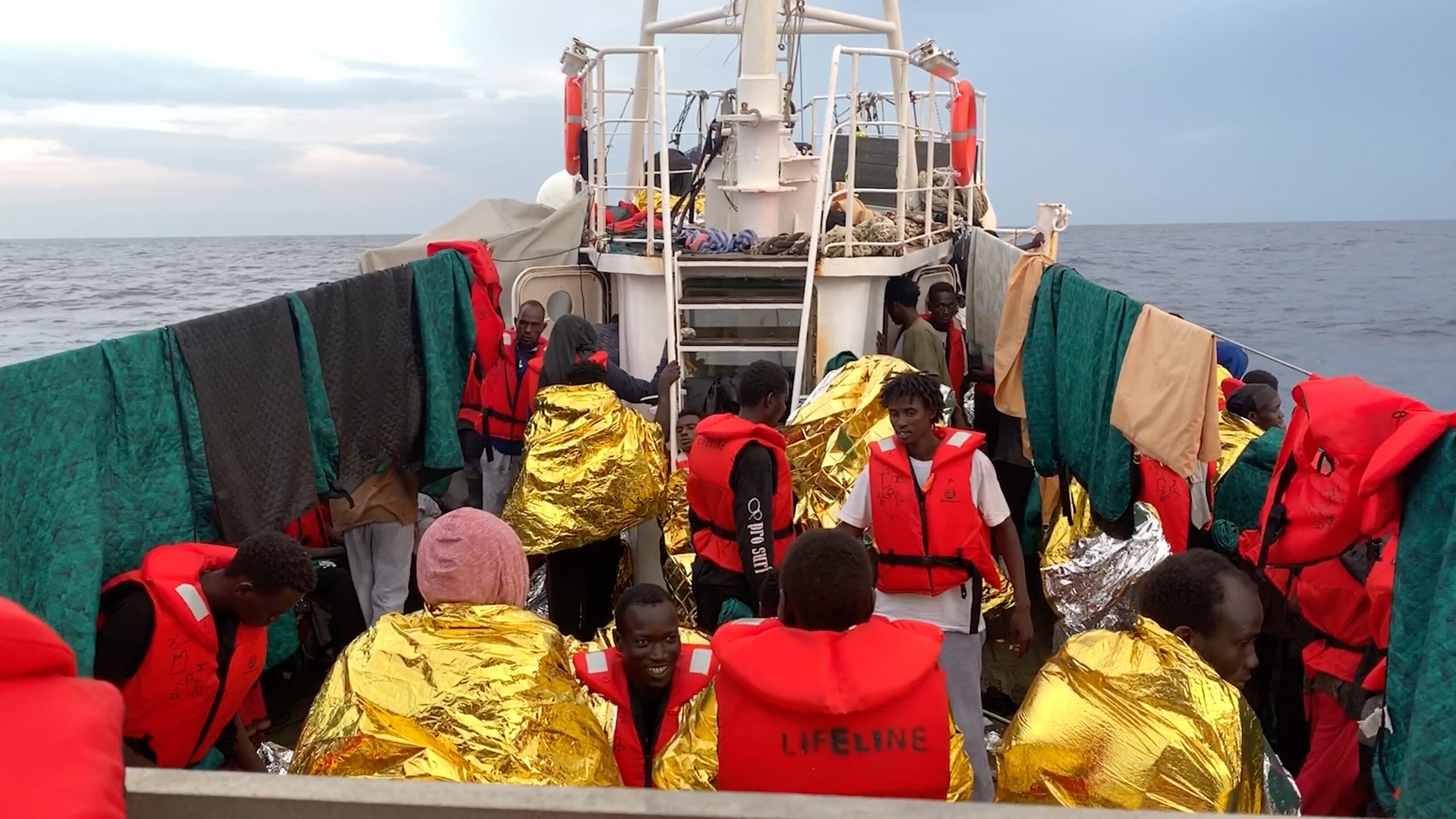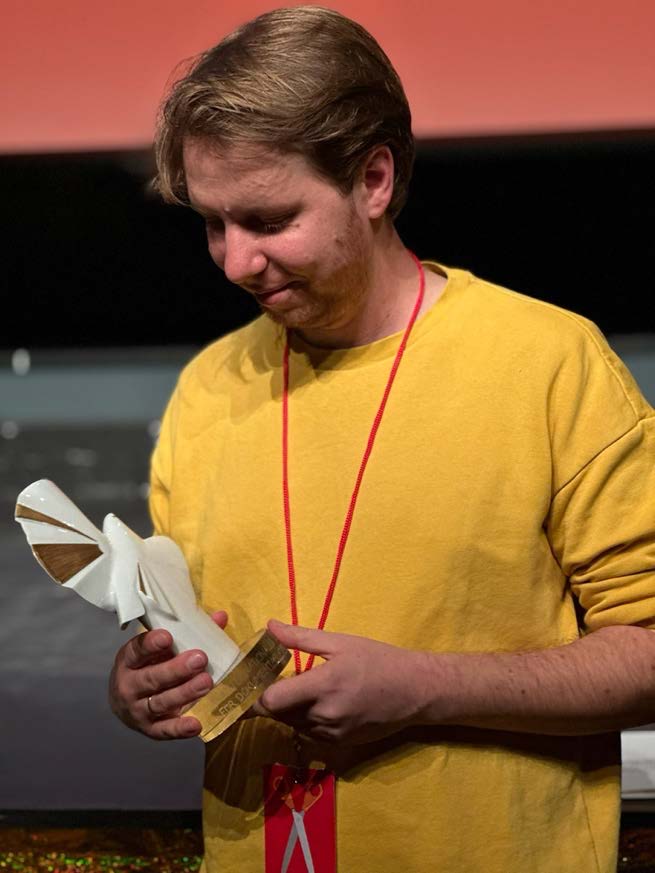Original title: One Hundred Four
Director: Jonathan Schörnig
Cinematography: Jonathan Schörnig, Johannes Filous
Editing: no editing (real-time documentary)
Sound: Real-time audio
Cast: Crew of the rescue ship ELEONORE: Claus-Peter Reisch (captain), Martin Ernst (1st officer (RHIB driver), Thorsten Smikalla (2nd officer), Gerald Karl (3rd officer / deck manager), Clara Richter (cultural mediator / cook), Georg Albiez (ship’s doctor), Kostis Plevris (RHIB communications)
Producer: Uwe Nitschke
Co-Producer: Adrian Then
Year of production: 2023
Genre: Dokumentary
Country: Germany
Languages: English, Germany
Subtitles: German, English, French, Spanish, Portuguese, Russian, Arabic, Chinese
Length: 93 Min
Rating: FSK 12
Aspect ratio / resolution: 1,85:1 (4K: 3996×2160 / 2K:1998×1080)
DCP / Projektions-mp4: DCI 4K/2K-F Stereo (2.0) / 1080P LB185 (Letterboxed)
International title:
English: One Hundred Four
Awards:
2023 DOK Leipzig: Deutscher Wettbewerb Dokumentarfilm “Goldene Taube Langfilm” -> Einhundertvier
2023 DOK Leipzig: “Filmpreis Leipziger Ring” -> Einhundertvier
2023 DOK Leipzig: “Dokumentarfilmpreis des Goethe-Instituts” -> Einhundertvier
2023 DOK Leipzig: “ver.di Preis für Solidarität, Menschlichkeit und Fairness” -> Einhundertvier
2024 “It’s all True” Int. Documentary Film Festival, São Paolo, Brazil: Best International Documentary -> Einhundertvier
Film label: NONFY Documentaries
Distribution: UCM.ONE


